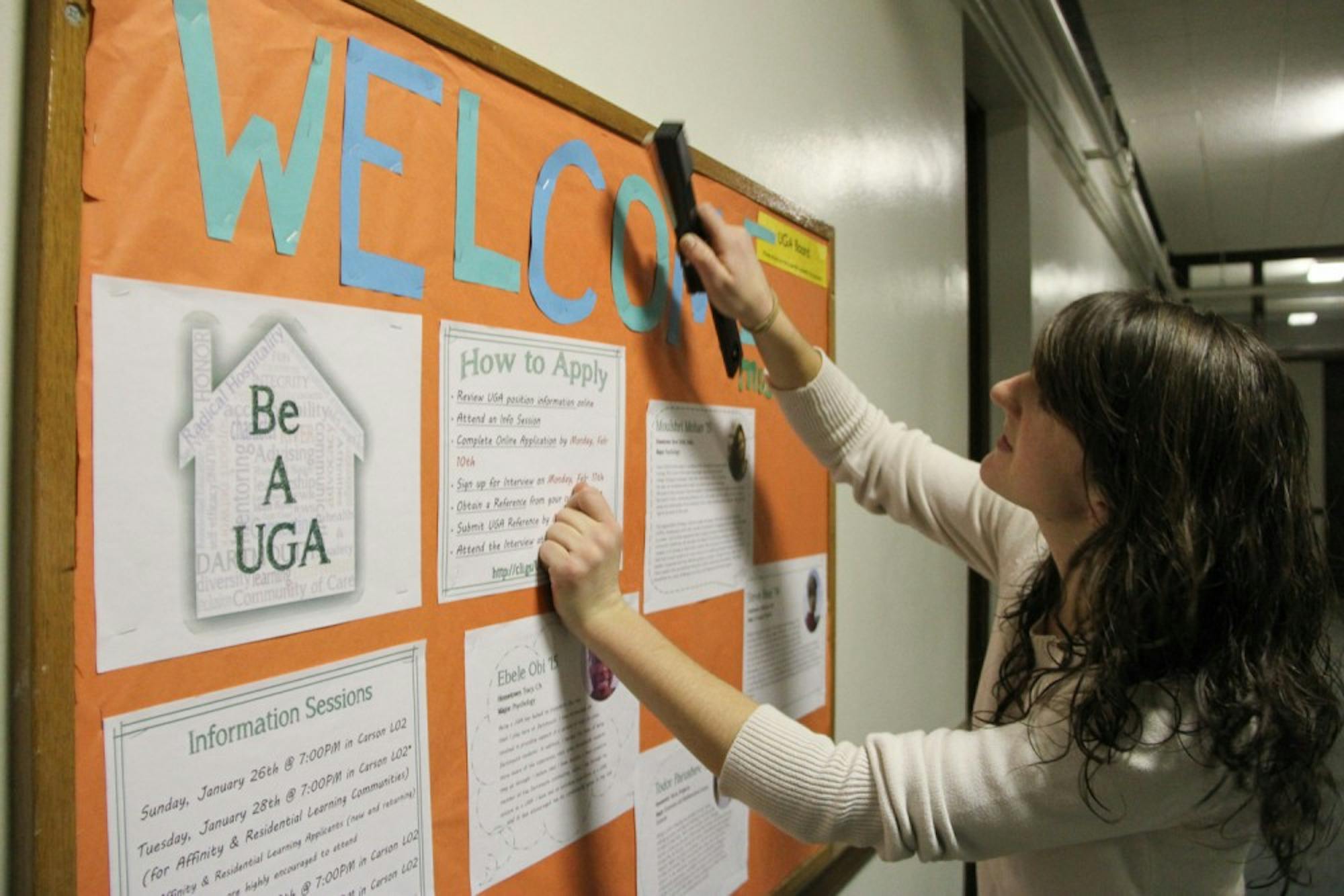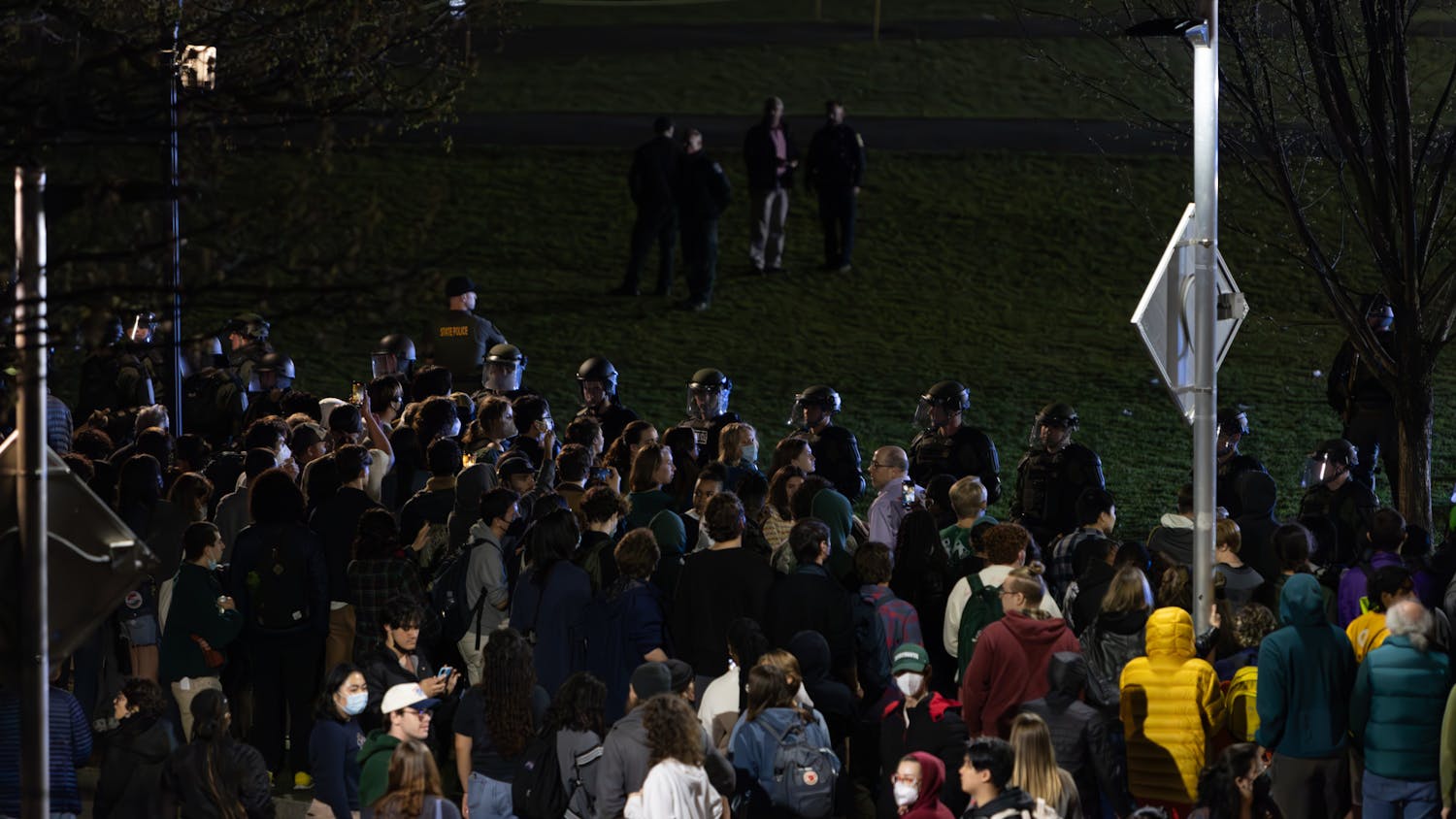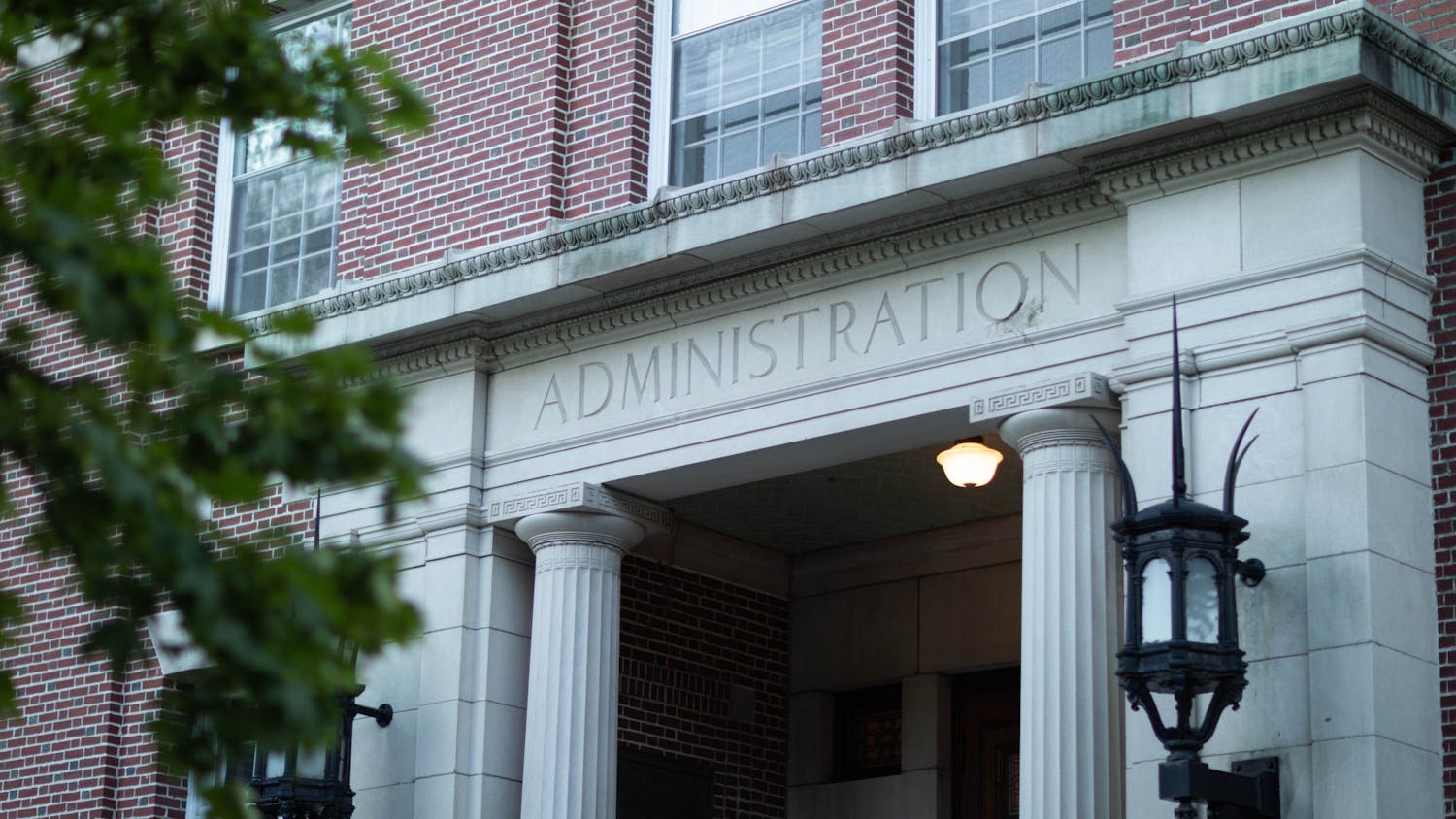In an effort to boost one-on-one interaction between upperclassmen and their undergraduate advisors, the office of residential education has been working over the past year to change the upperclass UGA model to emphasize individualized interactions instead of traditional programming and floor events.
UGAs on upperclassmen floors will invite residents to one-on-one “coffee talks” in an effort to increase one-on-one interactions. During these outings, UGAs are encouraged to use “motivational interviewing,” which involves asking probing questions, setting goals and with their residents, Alcohol and drug education program coordinator Caitlin Barthelmes said. The office of residential life will fund the meetings.
As with any programs they host, UGAs must complete paperwork before and after the coffee talks. This work will evaluate the conversations motivational interviewing techniques, as well as keep a log of how many residents have participated.
Fischer Yan ’14, who served as a first-year UGA her sophomore year and is now an upperclassmen UGA, said she thought the new model allows for more intimate and professional relationships to develop between UGAs and their residents, but noted that some students were not as receptive to the new system.
“It makes sense that it’s changed,” Yan said. “But it is confusing when programming is still required of us, simultaneously because it places more responsibility on the UGA to try to knit together these upperclassmen, a lot of whom are affiliated and have their own communities already.”
Former first-year UGA Salman Rajput ’14 said that while he thought UGAs play an important role in the lives of freshmen, upperclassmen UGAs did not have to be as involved.
“Upperclassmen already know what they’re doing, who their friends are, where they want to hang out,” he said. “I think it seems kind of forced to get your residents to make time for you, especially when a lot of times people feel time pressed trying to juggle classes as well as extra-curriculars and trying to socialize.”
Emily Grotz ’16 said she appreciated the new model’s flexibility.
Several upperclassmen UGAs said they found their residents receptive or neutral to the coffee-talk model.
Karen Afre ’12, a two-time first-year UGA and current upperclassmen UGA, said that although she notices differences in her interactions with upperclassmen residents, the coffee talks are a fun and free way to get out of dorms.
“I think I have managed to build a community,” Afre said. “I’ve gotten to know most of my residents pretty well, and most of them have actually asked to go on another coffee talk.”
Another new component of UGAs’ responsibilities, implemented independently from the shift to the coffee-talk model, are continuing education credits. The requirement expects UGAs to learn about topics that will make them more valuable resources for residents. UGAs can obtain their three required credits per term by participating in Eating Disorder Peer Advisors, Sexual Abuse Peer Advisors, Drug and Alcohol Peer Advisors or Dartmouth Bystander Initiative training.
UGA salaries for the 2012-2013 academic year increased from $1,000 to $1,300 per term, in addition to a $1,500 credit toward a meal plan.
Residential education director Michael Wooten said these salary increases were implemented prior to the changes made to the upperclassmen UGA model. They were made to make paychecks, which had not increased in years, more fair.




